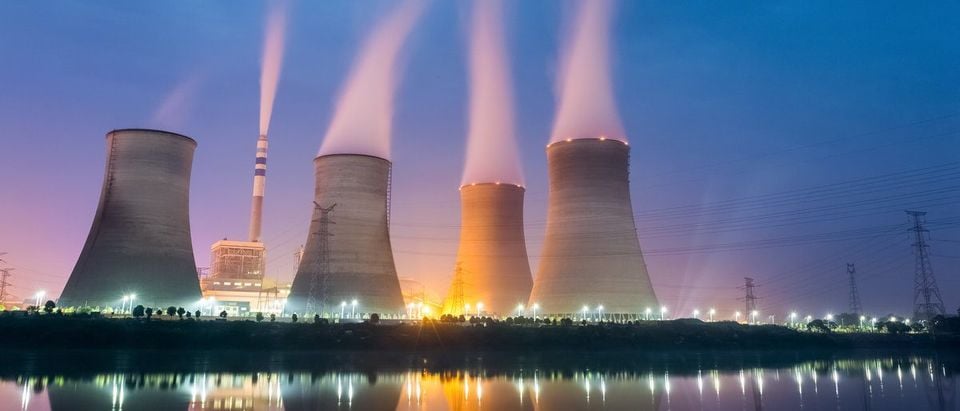Kenya is getting ready to start building a $5 billion dollar nuclear power plant, but its unclear where the money is coming from.
Kenya’s first nuclear reactor is scheduled to be completed by 2027 and will generate an estimated 1,000 megawatts of power. Kenya has signed agreements with China for the larger country to help finance and construct similar reactors. China’s state-controlled nuclear companies have already offered technical assistance in handling the nuclear fuel Kenya will need.
Another potential funding source for the reactor is South Korea, which signed agreements to collaborate on designing, operating and financing Kenyan reactors.
“When we talk of 1,000 megawatts, we are talking half of the capacity we have right now in the country,” Collins Gordon Juma, CEO of Kenya’s Nuclear Electricity Board, told Bloomberg Markets Tuesday. “It is very expensive, so we are looking at several funding options. We are speaking to various governments.”
Kenya currently generates about 2,299 megawatts of electricity, mostly from geothermal wells and hydro-electricity dams, according to the Energy Regulatory Commission. The country intends to increase its generating capacity to 6,766 megawatts by 2020. Kenya is seeking to build another 4,000-megawatt nuclear facility by 2033.
Kenya wants nuclear power because it would reduce the price of electricity from the current average of 18.7 cents per kilowatt-hour to an estimated four to six cents per kilowatt-hour.
Kenya is one of the most stable countries in East Africa, but the country has a serious problem with Islamic terrorism. In 1998, 200 people were killed when al-Qaida affiliate Egyptian Islamic Jihad bombed the U.S. embassy in the country. Another 13 were killed in an attack on an Israeli-owned Paradise hotel in 2002. More recently, the militant Islamic terror group, Al-Shabaab, killed 67 people in an attack on a shopping mall in 2013.
The country’s new reactor would not produce the weapons-grade plutonium necessary to make a nuclear weapon, but materials from them could be used to create dirty bombs. A dirty bomb combines radioactive material with conventional explosives that could contaminate the local area with high radiation levels for long periods of time and cause mass panic, though it would be millions of times weaker than an actual nuclear device. The Islamic State wants to steal this kind of radioactive material for a dirty bomb.
Other countries with serious Islamic terrorism problems are also constructing nuclear reacotrs.
Saudi Arabia plans to build 16 nuclear power plants from Russia for $100 billion despite terrorism concerns, according to a Monday announcement from a government-controlled nuclear power company. The reactors will be built by the Russian government controlled Rosatom State Nuclear Energy Cooperation.
The nearby United Arab Emirates is building the Middle East’s first nuclear plant, which will house four other reactors and should be completed in 2018, 2019, 2020 and 2022. When the plant is finished, it will provide a quarter of the country’s electricity, generating 5,600 megawatts of power.
Send tips to andrew@
All content created by the Daily Caller News Foundation, an independent and nonpartisan newswire service, is available without charge to any legitimate news publisher that can provide a large audience. All republished articles must include our logo, our reporter’s byline and their DCNF affiliation. For any questions about our guidelines or partnering with us, please contact licensing@dailycallernewsfoundation.org.


